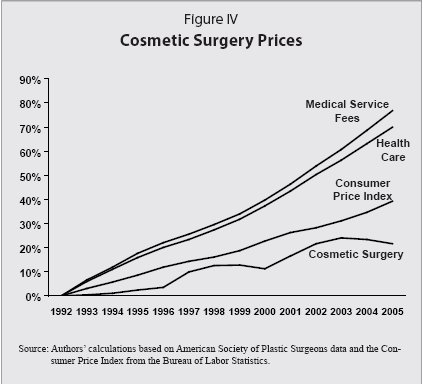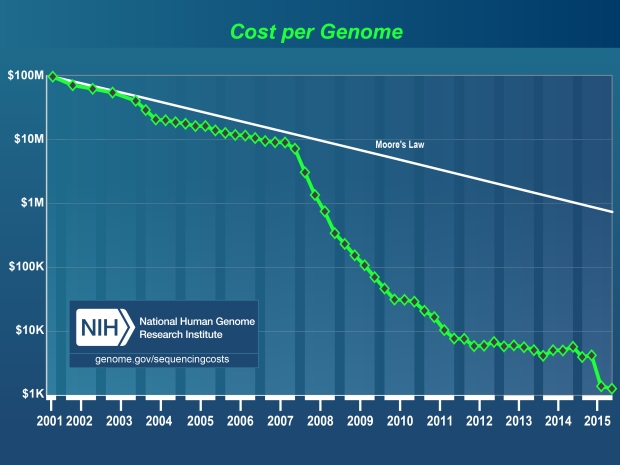[Introduction; Round 1; Round 2: Libertes, Precautiones; Round 3: Libertes, Precautiones; Round 4; Single page]
by David Severa
First, I think it’s important for me to clarify that I’m not a libertarian and I’m not calling for a libertarian solution to anything. What I am is pro-market, and what I am calling for are market-based solutions. I completely share my interlocutor’s concerns with excessive government control of something as important as the human genome. However I don’t believe that the way to keep government out of our reproductive choices is for the government to enact a massive ban on certain reproductive choices! Quite the opposite. If we’re going to make emotional appeals, imagine prospective parents in their 40s looking to have their first child and seeking illegal genetic treatments out of concerns about disorders that are more common with older parents. Are you going to arrest the mother for that? The father?The doctor? Are you going to force people into buying subpar or even unsafe medical services? Bans don’t simply end demand, they push it underground into black markets. Bans don’t eliminate, they reduce.
Let me answer two of Precautiones’ questions, “How expensive is it? Who pays for it?” I’m not sure that the market for genetic engineering will particularly resemble the broader health care system. The reason people have health insurance is mainly to cover large, unavoidable, and often unexpected costs. Because this is (often) seen as a right or basic human necessity, governments intervene heavily or even monopolize the health care sector. Hence the breakdown of normal market controls on cost. The American mess is well known – opaque pricing, lack of expertise among patients and lack of time in emergencies making it hard to shop around, many layers of impenetrable bureaucracy – but many other countries have difficulties with costs (though none as bad).
Genetic engineering would be different. It would be a choice. Parents would have time to think things through, to shop around for what they want in terms of quality and price, to save in advance if need be. The market would be far more functional. In fact the market would resemble that for elective cosmetic surgeries. Quite unlike health care as a whole, plastic surgery costs have dropped in real terms in the US:
 (Source)
(Source)
It’s not a completely unregulated market, and nor would genetic engineering be. But it’s obvious that the standard virtuous cycle of competition leading to innovation and lower costs could work. For another point of comparison look at the recent drop in genome sequencing costs:
 (Source)
(Source)
Now, even if costs are dramatically lowered from their starting point, that’s no guarantee of broad affordability. (There’s a free market in mega yachts, after all.) And in vitro fertilization, presumably a necessary component of genetic engineering, isn’t cheap. Cost per round of IVF can be well over $10,000 in the US, and below or around $5,000 in other developed countries. That’s prohibitively expensive for many people. But while the cost of IVF hasn’t decreased in the last few decades there are some reasons to think that it might in the future: more widespread use, standardization, automation, larger clinics, and more effective techniques. It’s clearly impossible though, to predict where costs will settle. I strongly suspect that genetic engineering will eventually become affordable to most people, but that’s just a suspicion. (To be honest, I had expected to be able to paint a rosier picture when I started this section.) Still, the government control Precautiones warns of isn’t guaranteed at all, and might not even be likely. If most parents can pay their own way, that puts them in control.
I’m torn about whether subsidies would be a good idea or not if costs don’t come down enough or if they haven’t come down enough yet. A simple grant covering some fraction of the cost for poor families would alleviate distributional concerns, but we come back to the problem of what the subsidies will cover. State governments in the US are happy to high-handedly regulate what food people on food stamps can buy, and subsidies would be an excellent way to exercise the soft coercion Precautiones is worried about. Perhaps it will depend on the specifics.
As to the (interesting and unexpected!) argument about the third world being cut off from the gains of genetic engineering, that seems unlikely to me. Even if the third world remains much poorer than average in the future there would still be a tremendous amount of money to be made overall. Plus knowledge travels rather freely these days. If military secrets aren’t that secure, how will scientific knowledge and trade secrets be kept safe? Indeed, different laws worldwide along with the possibilities of medical tourism make it more likely that nations will be unable to keep genetic engineering out rather than keep it in.
But even if the benefits from genetic engineering are unevenly distributed, will those shut out from the treatment actually be worse off? Returning to Hive Mind, Jones argues that there are great benefits to being in a nation full of smart and productive people, even if you’re below average. Barbers, a relatively low-skilled occupation, make much more in the US than in India. That should be obvious to everyone. Plus smarter people will come up with more inventions to improve the lives of everyone. Concerns that the enhanced, who will likely overlap in traits with the unenhanced, will take over and rule for their own benefit as a caste seem overblown, though I guess not strictly impossible. Maybe there will be worries about inequality, sure. But we have those now, and frankly inequality seems to me something that people dislike all out of proportion to the (non-zero) harms it causes, though fleshing that argument out would take us too far afield. In any case, the free market will likely enable people to join the ranks of the enhanced, not keep them out, and a transitional period of inequality would be better than the alternative of stagnation.
The concern about a loss of human diversity – an end to autism, perhaps – is valid. Something may be lost forever. Whether humanity will create new sorts of diversity to make up the difference remains to be seen. But given the high human cost of many disorders like severe depression, I suspect the changes will be worth it regardless.
One last point: Precautiones asked whether there might be unavoidable trade-offs between, say, increasing intelligence and increasing altruism. If there are, then the technology will simply be less effective than expected and thus less of a reason for concern. This dialogue will soon read like an argument over the potential impact of cold fusion.

One thought on “[Dialogue] Genetic Engineering – Libertes’ first reply”